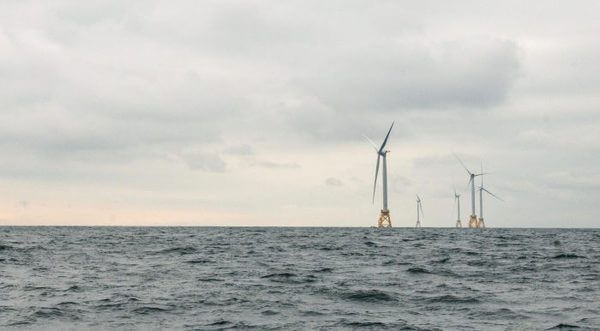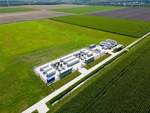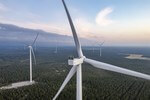News Release from windfair.net
Wind Industry Profile of
A New Start After The Disaster - Puerto Rico Offers a Unique Opportunity
On September 20, the catastrophe broke in over Puerto Rico: Shortly after Hurricane Irma, Hurricane Maria devastated the unincorporated US territory and left the nearly 3.4 million inhabitants without a functioning electricity and water supply. And the full extent of the damage now showes. Like the US Department of Energy have declared now, more than 80 percent of the island's electricity grid has been destroyed and most of the inhabitants still have no electricity.
But there is also an opportunity in this catastrophe: first politicians are already calling on the government in Washington to take advantage of the opportunity to completely modernise the system and convert the energy supply to renewables. Up to now, the island has been almost completely supplied with energy by expensive imports of gas, oil and coal with generators running day and night. Thus the residents have to bear the second highest energy costs in the US. Place #1 is currently occupied by Hawaii, which has been making its waters usable for offshore wind energy for some time to lower costs in the foreseeable future.
This possibility is now also available to Puerto Rico. Renewable energies currently account for only 2.4 percent of the electricity mix. This proportion is set to rise to 20 percent by 2035. The island currently has an installed capacity of 125 megawatts of wind energy, divided into three wind farms. The owner of the largest one, American energy utility Pattern Energy, announced lately that the turbines of its Santa Isabel wind farm (101 MW) were not damaged by the hurricanes. It was possible to prepare for the storm in good time and shut down the facilities accordingly, as well as bring all employees to safety. Without a functioning grid, however, it is of no use to anyone if the turbines produce electricity.
The problems of the island are not new though. Even before the hurricane hit, the electricity grid was considered to be hopelessly outdated. The island's own energy supplier PREPA had to file for bankruptcy in July after accumulating nine billion dollars in debt. No wonder that US President Donald Trump's pledges of aid to the tormented island were timid and he first referred to the immense pile of debt.
But with the help of state funds, that have now been set up for Puerto Rico, it is possible to rebuild the power grid - including underground cabling, which makes the power supply less susceptible to future storms. Ramon Luis Nieves, a Puerto Rican politician from the Popular Democratic Party, who headed the island's senate energy committee until his term expired in January, told Reuters: “We cannot waste the opportunity of this crisis and federal aid package. We need to focus on not only getting the grid back up, but improving it so it can tolerate more renewable energy.”

The only offshore wind farm in the US supplies the island of Block Island with clean electricity (Photo: Deepwater Wind)
Another possibility for the future is, for example, in microgrids powered by wind or solar energy. In case of a storm, this could mean that the energy supply in various smaller regions could be restored more quickly than having to wait for the large grid to be repaired. “A microgrid’s multiple generation sources and ability to isolate itself from the larger network during an outage on the central grid ensures highly reliable power,” a report from the National Electrical Manufacturers Association found. Coupled with storage facilities, such systems can even provide faster assistance in times of crisis.
These systems have already proven their efficiency in other regions of the US. The first US offshore wind farm Block Island, for example, supplies the inhabitants of the island of the same name. Here, too, the generators previously required were replaced by clean energy from wind.
The same is possible in the long term in Puerto Rico, if everyone pulls together. Hurricane Maria will certainly not be the last storm to descend upon the island. Let's just hope that a lot has changed by then.
- Author:
- Katrin Radtke
- Email:
- press@windfair.net
- Keywords:
- Puerto Rico, USA, micro grid, grid, wind, solar, Pattern Energy, storage, battery



























